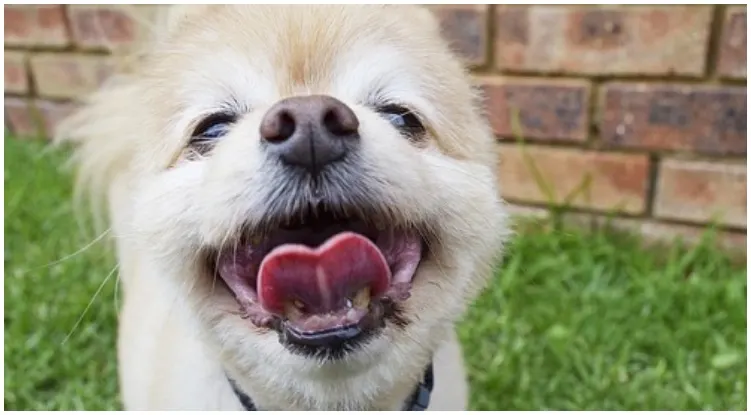Dog owners constantly have to worry about their pet’s health. It’s our responsibility to make sure that they are healthy and notice any strange signs and symptoms. When it comes to breathing, they are different anomalies that can occur in canine. One of them is wheezing. To learn the answer to the question “Why is my dog wheezing” and when the wheezing becomes a medical emergency, keep on reading.
Why is my dog wheezing
Wheezing most commonly occurs when there is something that impairs or blocks the flow of air in the windpipe. This condition is mostly commonly due to swelling and inflammation in the airways or due to something getting stuck in the windpipe. However, there is also a number of other reasons that could cause the whistling sound coming from your dog’s respiratory system.
If the wheezing only lasts for a couple of seconds and isn’t a common occurrence, there is most likely nothing to worry about. But if your dog is wheezing all the time or if the wheezing comes with some other symptoms — you have to visit a vet.
What does the wheezing sound like?
Some people may confuse the wheezing sound for a coughing or sneezing. However, the sound is different and is very similar to the wheezing sound humans would make. The wheezing sound is high pitched and usually occurs on an exhale.
What causes wheezing in dogs
There is a number of medical conditions that could cause wheezing in dogs. The most common ones are:
Chronic bronchitis
Chronic bronchitis affects the lower airways. The inflammation that occurs causes the airways to swell and they release mucus, which will narrow the airways. That will cause difficulties breathing and also wheezing.
Collapsed windpipe
This condition directly affects the windpipe, or also known as the trachea. Supportive cartilage rings around the trachea collapse, causing obstruction of the airway. Symptoms include a honking cough, abnormal breathing sounds including wheezing.
Environmental allergies
Many dog breeds are prone to allergies. Environmental allergies caused by pollen, mold or dust can lead to wheezing in dogs. Allergies case airways to swell, making breathing a lot more difficult.
Kennel Cough
Kennel cough is an upper respiratory infection that irritates and inflames the airways. A persistent cough is the most common symptom, however, wheezing often occurs too.
Infections
Infections of the upper respiratory system can cause wheezing too. Mucus starts to accumulate in the airways and narrows them down significantly.
Heart Disease
Heart diseases often cause wheezing especially in older dogs. Difficulties breathing are due to a dog’s lethargy and exercise intolerance.
Foreign Body
Another very common reason for wheezing in dogs are foreign bodies in the airways. These bodies include bone fragments, pieces of food, toys, or anything else that your dog may find.
When to be concerned that your dog’s wheezing
If your dog is wheezing only on very rare occasions and the wheeze lasts for a couple of seconds, you most likely have nothing to worry about. Humans wheeze occasionally too, as different triggers can narrow down our airways for a few seconds.
However, there are a few instances where the wheezing should be a red flag. It can be especially dangerous if the wheezing is accompanied by a number of other symptoms.
- Your dog is gasping for breath while wheezing.
This could be a sign of a life-threatening medical emergency like an allergic reaction or a serious heart condition.
- Your dog is wheezing and gagging
If your dog is gagging while wheezing, chances are that their is something stuck in his windpipe.
- The wheezing is accompanied by coughing
If the wheezing is accompanied by a cough, it may indicate to an upper respiratory respiratory infection.
- Your dog has blue or pale gums
Blue or pale gums are a sign that your dog isn’t getting enough oxygen and he needs medical attention right away.
- Your dog keeps wheezing
If the wheezing persists for a longer period of time, it’s definitely a sign that you should visit the vet.
What should I do If my dog is wheezing?
While in some cases the wheezing will go away by itself, there are some other instances where you should step in.
First of all, no matter what the reason of the wheezing is — you have to stay calm and remain a cool head. You can only help your dog if you are collected and thinking clearly.
Move your dog to a well-ventilated area so that he can get a good airflow.
Additionally, try to remove all triggers from your dog’s environment that could cause the wheezing. These include allergens, strong scents, lit candles, air fresheners.
If the wheezing continues, you have to take your dog to see a professional. A vet will know what to do and how to help your canine. The one thing that you could do to help the doctor diagnose your pet is to take a video of your dog’s symptoms. That way he can tell if there are any additional signs of an underlying disease.
Unfortunately, dog’s are prone to other health conditions as well. Inform and educate yourself to know how to help your canine:
- Why Is My Female Dog’s Private Area Swollen
- What Toxins Can Cause Seizures In Dogs?
- What Is Parvo In Dogs And How To Treat It
- What Happens If A Dog Eats Chocolate?
- What Does Ringworm Look Like On A Dog?

